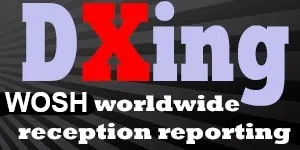GREEN BAY, Wis. (WFRV) – UW-Green Bay educator Robert Fish is taking to the water this summer, joining scientists and staff from the Center for Great Lakes Literacy aboard the EPA research vessel Lake Guardian for a weeklong scientific expedition.
Fish, who serves as the Tribal Engagement Coordinator at UW-Green Bay, works with tribal schools to create and promote educational programs focused on wetlands, estuaries, and coastlines. His work connects water science to Wisconsin First Nation history, culture, and sovereignty.
Wisconsin State Patrol to soon kick off ‘Trooper in a Truck’
“I’m really looking forward to doing scientific research that can directly impact our understanding of the tribal history and presence in the Bay of Green Bay and also the Great Lakes in general,” Fish said before the trip. “With some of the lakebed mapping efforts happening through this project, we could find Indigenous sites, which could bring what many consider ancient tribal history into a contemporary light.”
The voyage is part of a broader partnership between the EPA Great Lakes National Program Office and NOAA, with support from the Great Lakes Restoration Initiative. During the expedition, educators work alongside researchers to study Lake Michigan, gaining knowledge and tools to bring back to their classrooms.
The Lake Michigan expedition is hosted by Illinois-Indiana Sea Grant and Wisconsin Sea Grant, in partnership with the Center for Great Lakes Literacy (CGLL), which is a collaborative network of Sea Grant educators from across the Great Lakes region.
Wisconsin elections commission says former Madison clerk broke laws
The CGLL’s Shipboard Science Immersions aim to promote Great Lakes science education and build lasting relationships between researchers and educators. Through hands-on experiences and fieldwork, the initiative fosters informed stewardship and environmental literacy among students, teachers, and communities throughout the Great Lakes basin.
The expedition lasts from July 7-13.












